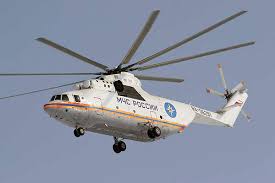Stamp: Helicopter - Sir Francis Chichester (Cinderellas 1967)
Helicopter - Sir Francis Chichester (Cinderellas 1967)
01 January (Cinderellas ) within release Ireland : Principality of Thomond goes into circulation Stamp Helicopter - Sir Francis Chichester face value 2'6 Irish shilling
| Stamp Helicopter - Sir Francis Chichester in catalogues | |
|---|---|
| Colnect codes: | Col: IE-TH 1967-01/12 |
Stamp is square format.
1961 issue overprinted "SIR FRANCIS CHICHESTER GYPSY MOTH 1967" in black Also exists with overprint doubled, one invertedAlso in the issue Ireland : Principality of Thomond:
- Stamp - Bird and flowering branch - Sir Francis Chichester face value 1'6;
- Stamp - Birds on branch - Sir Francis Chichester face value 9;
- Stamp - Football game - Sir Francis Chichester face value 1½;
- Stamp - Football game - Sir Francis Chichester face value 4;
- Stamp - Helicopter - Sir Francis Chichester face value 2'6;
- Stamp - Horse racing - Sir Francis Chichester face value 2½;
- Stamp - Hummingbirds in tree - Sir Francis Chichester face value 6;
- Stamp - Jet airliners - Sir Francis Chichester face value 2;
- Stamp - Pink roses - Sir Francis Chichester face value ½;
- Stamp - Rugby - Sir Francis Chichester face value 3;
- Stamp - Seagulls - Sir Francis Chichester face value 1;
- Stamp - Yellow roses - Sir Francis Chichester face value 1;
Stamp Helicopter - Sir Francis Chichester it reflects the thematic directions:
An aircraft (pl. aircraft) is a vehicle that is able to fly by gaining support from the air. It counters the force of gravity by using either static lift or the dynamic lift of an airfoil, or, in a few cases, direct downward thrust from its engines. Common examples of aircraft include airplanes, rotorcraft (including helicopters), airships (including blimps), gliders, paramotors, and hot air balloons.Part 1 (Definitions and Abbreviations) of Subchapter A of Chapter I of Title 14 of the U. S. Code of Federal Regulations states that aircraft "means a device that is used or intended to be used for flight in the air."
Aviation is the practical aspect or art of aeronautics, being the design, development, production, operation and use of aircraft, especially heavier than air aircraft. The word aviation was coined by French writer and former naval officer Gabriel La Landelle in 1863, from the verb avier (synonymous flying), itself derived from the Latin word avis ("bird") and the suffix -ation.
A helicopter is a type of rotorcraft in which lift and thrust are supplied by horizontally spinning rotors. This allows the helicopter to take off and land vertically, to hover, and to fly forward, backward and laterally. These attributes allow helicopters to be used in congested or isolated areas where fixed-wing aircraft and many forms of short take-off and landing (STOL) or short take-off and vertical landing (STOVL) aircraft cannot perform without a runway.


